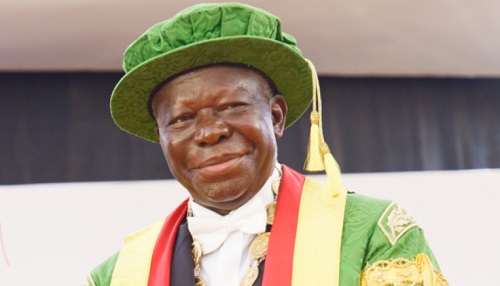Finance Minister, Ken Ofori-Atta, heads to Parliament to fulfil a constitutional mandate of presenting a revised budget to Parliament for approval today.
This particular mid-year budget review comes at time of austere measures ordinary Ghanaians are going through underpinned by the global ecosystem of high inflation and supply chain disruptions.
The country’s programme with the IMF is aimed at primarily stabilising the economy and subsequently, getting it back on track after suffering huge setbacks last year.
To be clear, what the country presented to the IMF is our “own” programme and NOT a conditionality forced down our throats by the Bretton Wood institution.
Among the measures inherent in the programme is government’s intensive revenue mobilisation drive.
We have seen taxes take hold in recent times. For instance, there have also been increases in utility tariffs and we are told to also expect more revenue measures as government pushes to fulfil its obligations under the deal in an attempt to secure the second tranche of the IMF bailout.
As reported in the Daily Graphic of Monday, 24th July edition, a deputy of minister of finance, Abena Osei-Asare, hinted that the mid-year budget review would focus on “revenue enhancement” measures.
“To be forewarned is to be forearmed,” as the saying goes.
Businesses are however, feeling uneasy about further taxes that will make things a lot more difficult in these challenging times.
Much as the suggestion has been that, in these times of austere measures, it is everyone’s duty to bite the bullet, the challenge for many, though, is that the same “old familiar foe” has been the target of all the austerity measures.
That is, those within the tax bracket are the target of all tax increases in the country.
There have been talks of further expanding the tax net. A lot of work has been done in that area.
The teething challenges hindering the take-off of this project notwithstanding, serious considerations have to be given to that idea.
For many businesses, many of which, are struggling to stay afloat, the thought of additional taxes would be too much to bear.
In era of tax hikes, many other possibilities exist. Tax evasion and tax avoidance are some of the creative ways businesses will adopt in order to survive.
For those who cannot survive, the ultimate is to fold up. What then becomes of the high taxes, if businesses cannot survive?
The very idea of raising government revenues through taxes will be defeated.
However, government does not have an option because of the IMF programme.
Besides, these are the very things needed to revive the economy.
The road to recovery is a very tortuous one indeed. It is one that needs to be shepherded and guarded meticulously to ensure that the end game of stable macro-economic stability and growth are achieved.
In so doing, however, we must be careful not to overburden the very businesses that have always ‘laid the golden eggs’.
With the implementation of the Africa Continental Free Trade Area (AFCTA), a higher tax regime for an example would have huge implications for our businesses to compete with their counterparts from other sister African countries.
It is for this reason and more that the Graphic Business is of the conviction that the Mid-year Budget review should strike a very fine balance of revenue generation and business growth.
A tax-laden budget without incentives for growth for the private sector would lead to further contraction rather than expansion of the economy.
For it is only when the economy expands through the private sector that the growth we envisage can be achieved.
SOURCE: GraphicOnline






